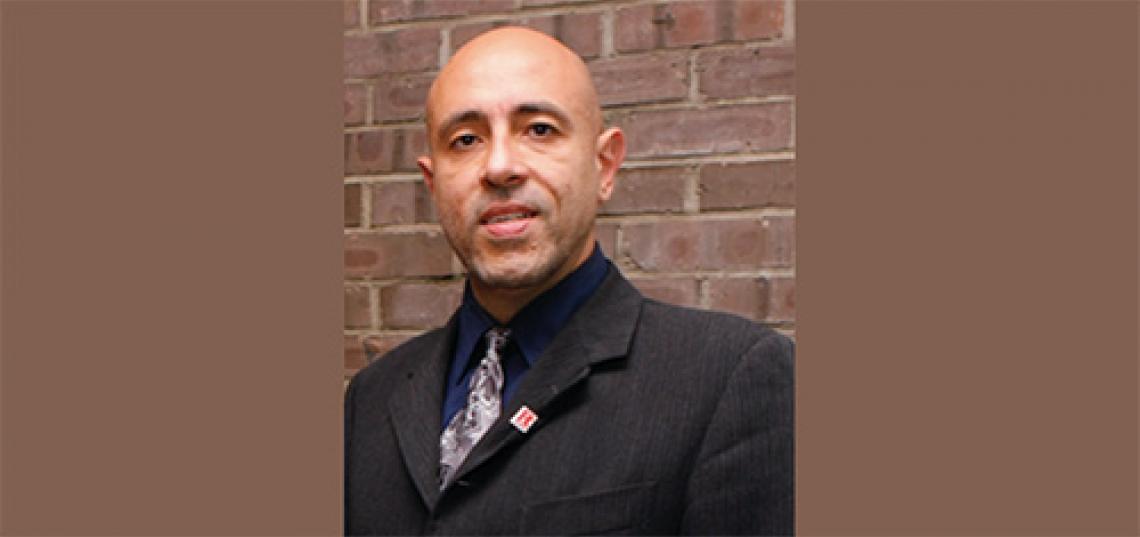
Who keeps secrets? People working in government, public companies, private organizations, and people working, or not working, everywhere else. Humans have always kept secrets and always will, so learning how to manage our professional and personal lives, knowing information will always be hidden from us at some point, is an essential skill for students to gain.
Providing teachers with advice on how to help their students build a foundation in secrecy literacy is the focus of a new paper titled “Revealing Challenges of Teaching Secrecy,” by Associate Professor of Journalism and Media Studies Jack Bratich and Craig Scott, a former SC&I faculty member, published in the journal “Secrecy and Society,” in a special issue dedicated to teaching about secrecy.
“Secrecy Literacy,” Bratich said, is “a set of skills to detect and interpret the ways that invisible, hidden, and anonymous activities shape the more visible and nameable phenomena in our world.”
Scott, who is now a professor and Chair of the Department of Communication Studies at the University of Texas at Austin, said, “Teaching about secrecy is fun, but also serious. In a time where issues of privacy are in tension with calls for transparency, better understanding of secrecy and how we manage the revelation of those secrets has become especially important.”
Much of the advice they provide in the paper stems from the experiences Bratich and Scott had while teaching a Bryne Seminar about secrecy for Rutgers freshmen, Bratich said. “The course was a type of training in perception, to see things normally hidden or coded. We discussed and looked at ads, reality tv shows, the Harry Potter series, a documentary called Wormwood, films like “National Treasure” and the Dan Brown novels. We assigned many sources to explore, including academic books on pop culture and secrecy (spies, the occult, magic), and the journal Secrecy and Society. In the class we focused on media and communication systems, specifically cultural and organizational processes. Secrecy has a wider application than something like privacy.”
In the paper, they refer to a definition of secrecy as “intentional concealment” and wrote, “secrecy is a key means by which we shape our own and others’ identities,” which is part of the reason, Bratich said, that earlier students learn how to identify and manage secrecy, the better prepared they will be for the future.
One of the goals of the Byrne Seminar was to teach students to “learn to critique corporate and government secrets that conceal wrongdoing,” and everyone can become more aware of the concealment attempts around them, Bratich said. “Anyone with tools to understand their jobs as well as relationships can at least pay more attention. There was a recent New York Times article about tech scam centers. One interesting finding was that employees didn’t know at first that they were running scams. They thought they were IT support staff. If people were a little more alert to how agendas can be hidden in such businesses, they might have been more clued in earlier.”
Interestingly, Bratich and Scott wrote in the paper, “society dislikes secrecy but it also dislikes full disclosure.” For students studying secrecy in the context of communication and media, understanding this is “a tricky balance: some secrecy is necessary as a form of life, whether it’s interpersonal, communal, or governmental. Corruption of systems can grow when secrecy is left unchecked, so some accountability measures are needed,” Bratich said.
The most important advice they strive to provide teachers through their paper, Bratich said, is that there are positive and negative sides to being more aware of the secrets around us. “It’s easy to teach people to pay attention to secrecy. It can also be debilitating to start seeing secrets everywhere, so constant reflection and moderation is necessary to teach secrecy literacy.”
Learn more about the Journalism and Media Studies Department at the Rutgers School of Communication and Information on the website.
